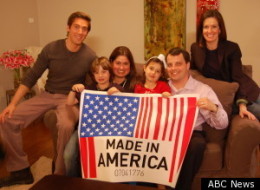Today's mid-term election, like the 2008 election, is very Big News. Headline-spawning, anchor-hyperventilating, ratings-rescuing news. For months now, news outlets of all sorts have been dialing up the quantity and--well, the quantity of their coverage of races across the country. Every visible or audible move by candidates beyond inhaling and exhaling has been uploaded, scrutinized, interpreted, Tweeted and remixed. Reasonably well-dressed people have debated, scoffed at and walked out on each other on camera in the throes of election and political analysis. Commenters on innumerable web sites have ridiculed and dehumanized each other, the candidates and the reasonably well-dressed people. Reporting, commentary and gnashing of tooth and tusk concerning election outcomes will be hard to avoid today, tonight, tomorrow, and so on.
And that's too bad. Like vultures circling, it's an indicator that something has gone wrong.
In a better world, political elections would not be such big news. Oh, they would be news. They would be important. But, they would not have the bile-generating, fury-inducing power that they have in many modern democracies. You might object that
of course elections should be big news. They have a major impact on society and the lives of everyone in it! And I would agree. That is the problem. More specifically, the fact that "major impact" barely begins to describe the effect elections have on people living in this land (and, indeed, on people living in distant lands) is the problem. We are, most of us, made worse off by the fact that so much of our lives has become insinuated by the structures of government. Permission to adapt to changing circumstances is often not forthcoming in such a society. For, the contest between the civil and the political is a largely zero-sum one. The growing scope for politics and its trappings (laws, regulations, etc.) means a shrinking scope for civil (i.e., voluntary) give and take.
But, it is this very growth in the scope of politics within our society that makes the outcome of elections all the more momentous--and therefore more newsworthy. Given the potent power government wields over Americans and, as important, the future powers precedent seems to reserve, it is tragically rational for us to take a keen, perhaps manic, interest in the details of these periodic scrambles for political posts. And so, it is quite appropriate for the news media to build entire sets around the coverage of said scrambles. It's not every day that so much is decided about how we may or may not lawfully live our lives.
It's too bad the mid-term elections are Big News. But, they are.
 My question about this is: what is it about that number that David Muir and his colleagues so adore? Presumably, it's not that it's small. Would it be a bad thing, then, if through innovation that number were trimmed to 150? 125? 100? What if the very same Winnebago could be made in the same amount of time, at no greater (and probably lower) cost, by just 50 dedicated Hawkeye State workers--perhaps 50 Jack Rebneys? Would that be a net positive for the company? Iowa? The country? Humanity? Would Diane chime in about what "great news" such ingenuity is?
My question about this is: what is it about that number that David Muir and his colleagues so adore? Presumably, it's not that it's small. Would it be a bad thing, then, if through innovation that number were trimmed to 150? 125? 100? What if the very same Winnebago could be made in the same amount of time, at no greater (and probably lower) cost, by just 50 dedicated Hawkeye State workers--perhaps 50 Jack Rebneys? Would that be a net positive for the company? Iowa? The country? Humanity? Would Diane chime in about what "great news" such ingenuity is?







